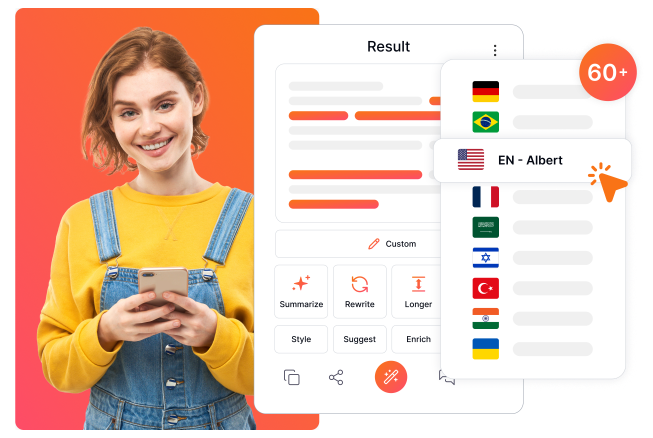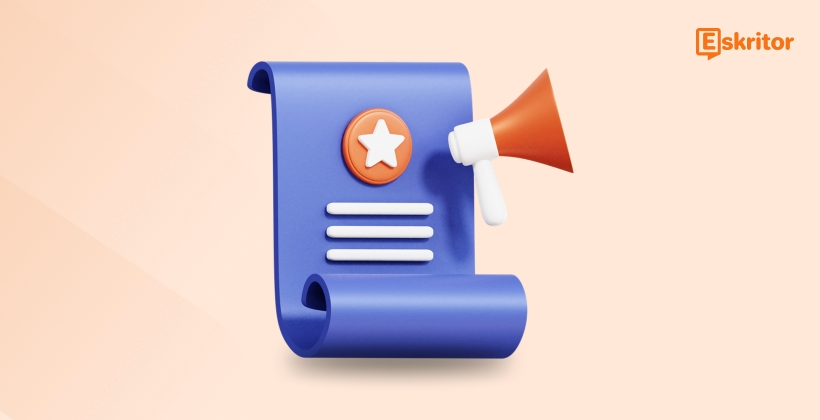AI Editing Features That Improve Your Writing Workflow
AI Editing Features That Improve Your Writing Workflow
Blog Article
Top AI Writing Tools to Boost Productivity
Synthetic intelligence (AI) writing technology has evolved fast within the last decade, reshaping just how we build and interact with published content. From syntax correction resources to AI-generated books, the possibilities seem limitless. But where exactly is that technology going? Let's investigate the innovations, challenges, and potential potential of AI Editing.

How AI Writing Engineering Works Today
At their primary, AI publishing engineering depends on Organic Language Handling (NLP) and unit learning. These technologies help models to understand, create, and increase individual language. Resources available today excel at jobs like:
1. Content Generation
AI has reached a place where it could produce complete blog threads, social media marketing sayings, and even information articles. Some models are designed for mimicking individual writing designs therefore effectively that unique between AI- and human-written material is now increasingly difficult.
2. Syntax and Fashion Idea
AI-powered publishing assistants don't only always check for grammar and spelling errors; additionally they give suggestions to enhance tone, clarity, and syntax, making complex publishing available to a broad audience.
3. Sentiment Analysis
AI may consider the psychological tone of a bit, enabling companies to evaluate how their communications will resonate with readers. That is specially of use in marketing and client interaction.
The Current Trends in AI Writing Engineering
Many styles are surrounding the next phase of AI-powered writing tools:
• Personalization
AI publishing technology is significantly capable of tailoring material to individual preferences. Models can adjust to a user's writing design, ensuring the output thinks authentic.
• Multilingual Abilities
Several AI methods are expanding their international achieve by providing enhanced translation features and help for numerous languages.
• Enhanced Study Characteristics
AI methods now get the ability to analyze great levels of information and provide fact-checked, well-researched publishing in seconds, simplifying the process for experts in industries like law, money, and journalism.
What the Potential Keeps for AI Writing Engineering
1. Increased Imagination
While current AI is good at generating material, its imagination continues to be limited by patterns within their instruction data. Potential AI is not just estimated to assist but to produce unique, insightful performs that challenge individual imagination.
2. Smooth Cooperation
Envision an AI that works along side you in real-time, completing your phrases, performing live edits, and even brainstorming ideas. AI publishing methods may possibly soon become co-authors, enabling creativity to flow uninterrupted.
3. Honest and Accessible Design
With growing problem about plagiarism, misinformation, and bias, designers will work toward more translucent AI instruction procedures and moral implementation. Future methods will probably provide more extensive citations and methods to make certain accountability.
Problems and Concerns
The development of AI publishing engineering isn't without hurdles, including:
• Honest Problems

Who owns material created by AI? How do we assure AI-generated content is not scattering misinformation? These debates remain unresolved.
• Human-AI Balance
May AI match individual creativity or totally change specific functions? Many authors and artists worry about their relevance within an AI-driven world.
• Accessibility Separate
Not all organizations or parts have similar usage of cutting-edge AI resources, increasing questions concerning the influence of the technology on world wide inequality.
Adjusting the Way We Write
AI publishing engineering continues to be in their infancy in comparison to its potential. Whether you are a student designing documents, a material marketer targeting specific audiences, or perhaps a author seeking enthusiasm, AI tools can continue to revolutionize the writing process. Another decade promises breakthroughs that mixture individual ingenuity with device intelligence, creating a potential where publishing is more effective, accessible, and impactful than ever before.
Report this page